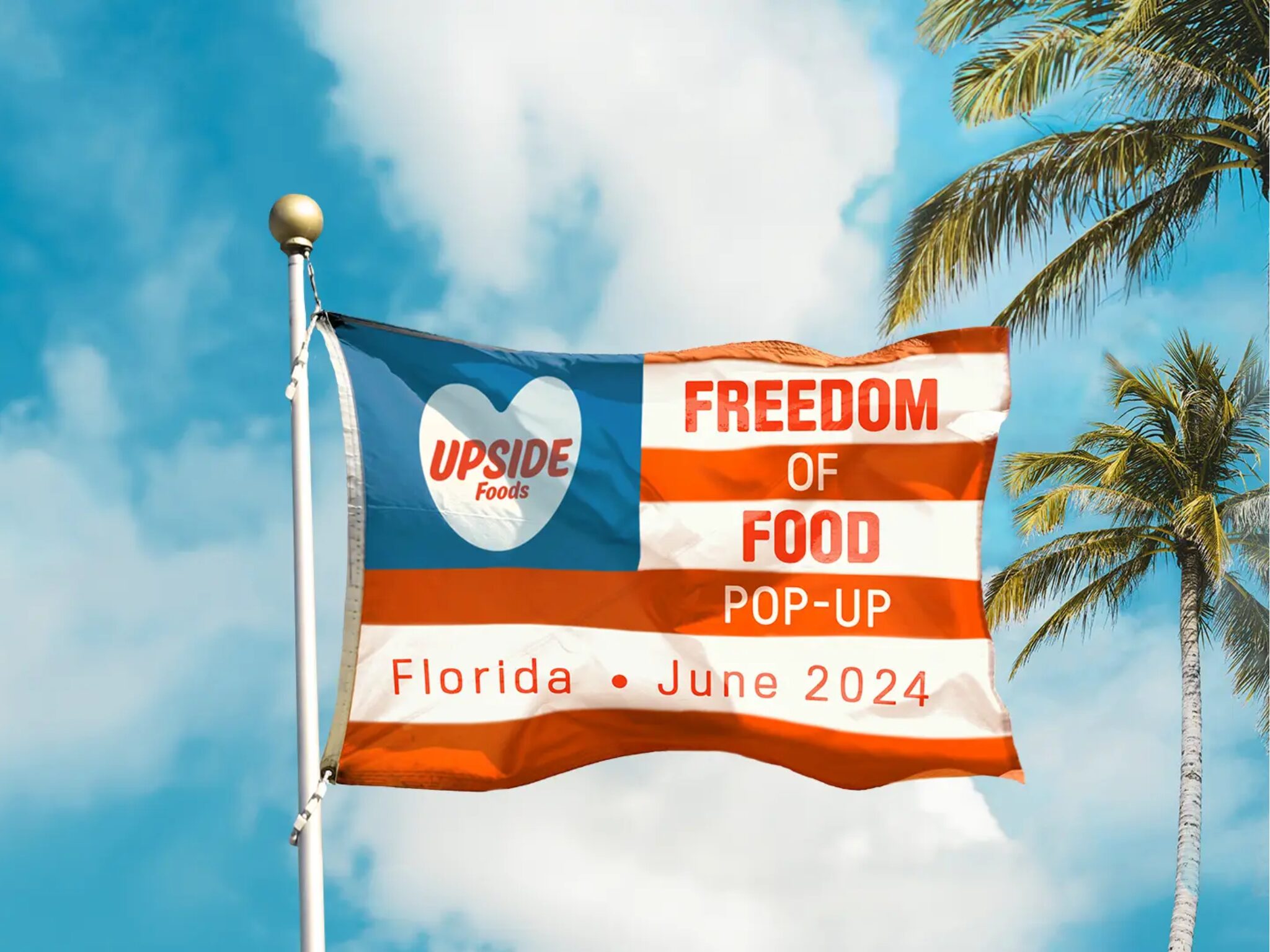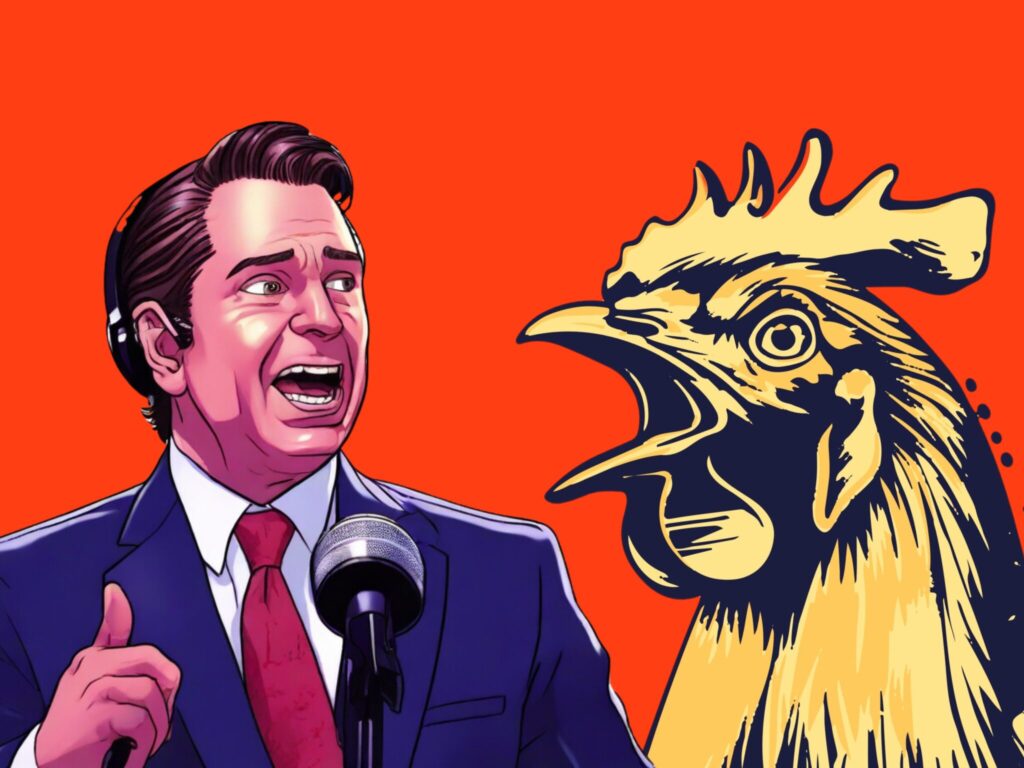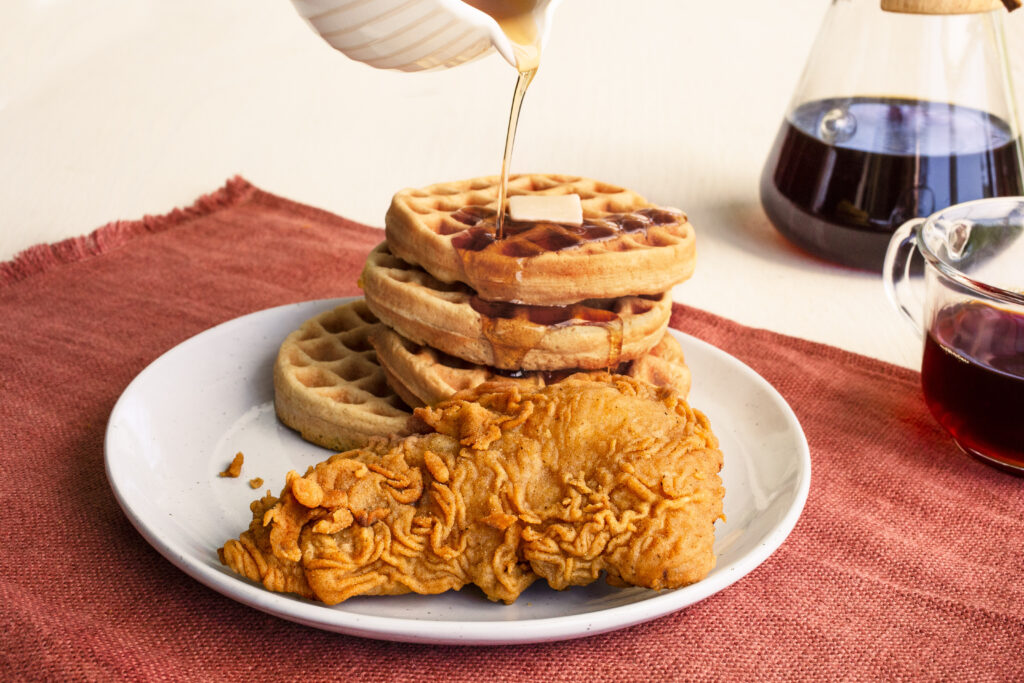
In three days, selling cultivated meat will be a felony in Florida – to celebrate food freedom, though, Upside Foods served its chicken at a pre-ban party in Miami.
On Thursday evening, at a rooftop in Miami, Upside Foods served customers some forbidden chicken.
Forbidden, that is, from Monday, July 1, when Florida’s ban on cultivated meat comes into effect. Announced in May by the liberal-elite-hating mayor Ron DeSantis, the law will make a second-degree misdemeanour to manufacture, transport, commercialise or sell cultivated meat.
“Take your fake lab-grown meat elsewhere. We’re not doing that in the state of Florida,” said DeSantis.
But just to show Floridians what their state is forcing them to miss out on, Upside Foods took its meat straight to its capital. The pre-ban event featured recipes from Miami chef, restauranteur and TV personality Mika Leon, with drinks from mixologist Gio Gutierrez.

The tasting was free of charge, which Upside Foods said was the first time cultivated meat has been offered to the public at no cost. This was deliberate. “We wanted to give as many people as possible the opportunity to taste cultivated meat in Florida before it’s banned,” the company’s COO, Amy Chen, told Green Queen.
The first-come, first-served event fed cultivated chicken to around 100 people, giving them the last “taste of freedom” before these novel proteins are officially prohibited in the state.
“The goal of this pop-up event is to provide Floridians with the opportunity to taste cultivated meat before it’s banned,” said Chen. “What’s more, we strongly believe that cultivated meat is an important part of our food future in Miami, Florida, and beyond. This event aims to celebrate and advocate for food freedom, innovation, and Florida’s potential to contribute to a growing industry and help shape the future of food.”
The menu at Florida’s pre-ban party
So how did Upside Foods present its chicken? Leon cooked up tostadas with the chicken made a la Plancha con Sazón, topping a corn tostada and accompanying avocado, chipotle crema, beet sprouts, and fresh lime zest.
“Chef Mika leans heavily into her Cuban roots and Miami culinary favourites to create beautiful, delicious, seasonal dishes and honour Caribbean traditions,” said Chen. “For our event, she used that lens to create a variety of vegetarian offerings in addition to her UPSIDE Chicken Tostada with house-made Sazón, avocado, and crema.”
Additionally, her restaurant Caje Caliente also catered some dishes. “Having had the opportunity to work with UPSIDE’s cultivated chicken, I can attest that their products are delicious,” said Leon.
“From appearance to aroma and taste, their products provide the same experience you’d expect from chicken. As a chef, I love the idea of preserving the foods we love while using innovation to figure out ways to create a better future of food,” she added.
What’s next for Upside Foods?

The event was co-hosted by the Brick and Timber Collective, a leading real estate company with properties in Miami, San Francisco and Los Angeles. “The state’s ban on cultivated meat is short-sighted and damaging to its tech ecosystem,” said Jesse Feldman, a partner at the firm.
“This policy not only affects cultivated meat but also stifles progress in biotech, life sciences, and other innovative industries that can thrive here. Opposing such policies is crucial to protect Florida and Miami as vibrant tech hubs,” he added.
Upside Foods co-founder and CEO Uma Valeti agreed. “This law disregards food safety experts, limits consumer choice, and stifles American innovation. It’s a setback for progress, job creation, and Florida’s potential in a new industry,” he said. “We believe in a future where everyone has access to delicious food options, and this event is our way of showcasing what’s possible.”

A host of other states are deliberating restrictions on cultivated meat, from Arizona, Texas and Tennessee in the south, to Nebraska in the midwest and Wisconsin in the Great Lakes. Chen noted that any legislation that “discriminates against cultivated meat” is “disappointing”, whether it’s a ban, defamatory labelling (calling it ‘lab-grown meat’, for example), or research limitations.
“We hope that the Florida legislature will revisit and reverse this legislation in their next session. Either way, these bans are unconstitutional, and we’re confident that the courts will ultimately restore food freedom for Floridians,” she said.
A week after DeSantis signed the bill in Florida, Alabama followed through with its own ban, threatening $500 in fines and up to three months in jail if you manufacture, sell or distribute cultivated meat. This will take effect on October 1. Asked if Upside Foods intends to host a similar public tasting in Alabama, Chen said: “Nothing is planned at the moment.”
Apart from the legislative mess, cultivated meat has also had its fair share of financial challenges, following a steep 75% dip in investment, reaching $226M in 2023. As of Q1 2024, startups in the space have only raised $12M. Upside Foods itself decided to pause construction on the commercial-scale facility it announced in September, laying off some employees to double investment in its existing pilot plant instead.
“The next chapter for us is focused on scale and commercialisation,” Chen said. Hinting at the future, she added: “We’re looking forward to bringing our next-generation products to market, pending regulatory clearance, and are excited that more consumers will have the chance to experience the future of food.”
The post Here’s What Upside Foods Served at the Pre-Ban Cultivated Meat Party in Florida appeared first on Green Queen.
This post was originally published on Green Queen.